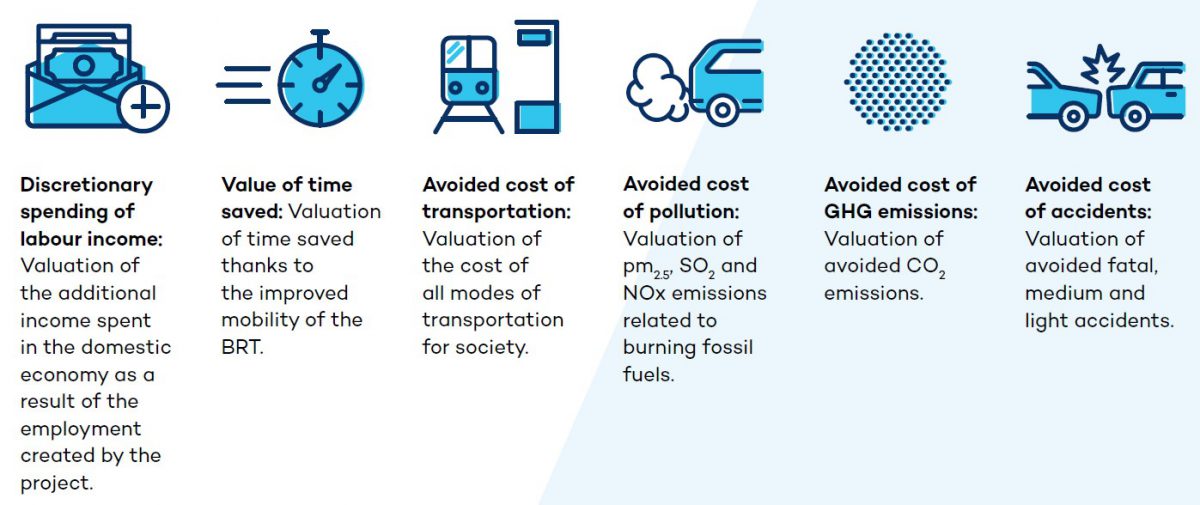IISD is working with the Senegalese government on making SAVi the preferred assessment methodology for sustainable infrastructure projects. IISD is collaborating with the Bureau Operationnel de Suivi (BOS), the monitoring agency of the Senegalese development plan “Plan Sénégal Emergent”. BOS monitors and assesses the contribution of 27 key infrastructure projects to the Senegalese development plan. SAVi has been used to provide assessments of two projects:
- The Bus Rapid Transit (BRT) project in Dakar – Report and brochure now available in English and French
- The wind farm Taiba N’diaye – Report and brochure now available in English and French
The BRT is a new public transportation project that is set up to improve mobility in and around Dakar. Upon project completion in 2023, the BRT will transfer 300,000 passengers per day (CETUD, 2016). The total cost of the project is estimated at EUR 369,490,000 over its lifetime and is financed by the World Bank, the European Bank, the Senegalese Government and the Green Climate Fund. The financing of the project was approved in 2017.
The SAVi assessment provides BOS with information on the added value of the BRT compared to a scenario where this public transport program does not exist. Given that demand for new public transportation projects is difficult to forecast, the SAVi assessment also includes two scenarios for calculating the financial impact of overestimating and underestimating demand, respectively. The SAVi assessment includes the valuation of six project-related externalities. It also includes projections for employment.

The value of the externalities was determined using impact studies by the Conseil Exécutif des Transports Urbains de Dakar (CETUD); a review by IISD on whether such values were in line with international best practice; and conversations with CETUD and BOS to ensure that these values were adapted to the Senegalese context.
The SAVi assessment demonstrates that the BRT project reduces public exposure to air pollution compared to other modes of transportation. It also reduces the cost of accidents, and significantly increases mobility of a large amount of people who otherwise would not travel to different parts of Dakar. While the BRT project inevitably has a negative impact on jobs involved in providing other modes of transportation, such as Bus DDD, AFTU, and taxis, the assessment also found that residents of Dakar overall have better access to the local job market. The BRT will reduce transport time for local residents, ultimately bringing more net benefits to the Senegalese society than a scenario without BRT. Our SAVi assessment demonstrates that the project’s internal rate of return and net present value both increase substantially when these externalities are accounted for in a valuation. These societal impacts are actually the reason why this project is financially viable for the government and other investors.
The data for the SAVi assessments is generated based on the project data of the BRT. The data for the comparison with other modes of transportation in the case of the BRT is based on data adjusted for the Senegalese context. IISD customizes every SAVi assessment to build the model based on country-specific assumptions. BOS and CETUD validated the assumptions for each assessment. The full analysis of the project is available on request.
IISD will continue to work with BOS to make SAVi the preferred assessment methodology for helping deploy sustainable infrastructure projects in Senegal.
References
CETUD. (2016). Préparation d’une expérience pilote d’un système de transport sur voies réservées à Dakar – Analyse économique du projet propose par SFI. Ministères des Infrastructures, des Transports Terrestres et du Désenclavement, Conseil Exécutif des Transports Urbains de Dakar (CETUD)
